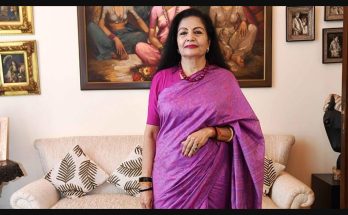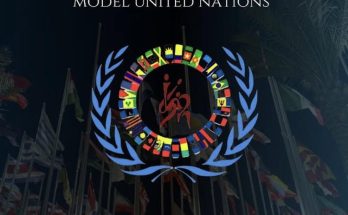
 The symbolism of the joint 2014 Nobel Peace Prize for a veteran Indian child rights activist and a Pakistani teenager who defied the Taliban to emerge as an icon of the girl’s right to education is compelling. The Nobel committee may not have envisaged relentless firing and hostility between the border troops of the two countries when they decided to award the Nobel to them, but the timing of the announcement has lent an extra resonance to this year’s Nobel Peace Prize. It has underlined the need for the two estranged South Asian countries to stop firing at each other, but to focus their energies instead on stamping out myriad social evils that hold up the enormous potential of their combined 1.4 billion people.
The symbolism of the joint 2014 Nobel Peace Prize for a veteran Indian child rights activist and a Pakistani teenager who defied the Taliban to emerge as an icon of the girl’s right to education is compelling. The Nobel committee may not have envisaged relentless firing and hostility between the border troops of the two countries when they decided to award the Nobel to them, but the timing of the announcement has lent an extra resonance to this year’s Nobel Peace Prize. It has underlined the need for the two estranged South Asian countries to stop firing at each other, but to focus their energies instead on stamping out myriad social evils that hold up the enormous potential of their combined 1.4 billion people.
The two winners may not have anything in common, but they are unified by their “struggle against the suppression of children and young people and for the right of all children to education,” in the words of the Norwegian Nobel Committee.
 Kailash Satyarthi, a 60-year-child rights activist, has been a relentless fighter against the pervasive curse of child labour in India for decades. He has been a pioneer-founder of Bacchpan Bachao Andolan (Save Childhood Movement) and his NGO has not just dabbled in advocacy, but has proactively espoused the cause and even raided premises of those sweatshops using children as fodder in their money-making machines. On the other hand, the 17-year-old Malala Yousufzai has emerged as a symbol of defiance against the medieval and regressive Taliban and a champion of the girl’s right to education in a country where social indices remain as grim as ever. Yousafzai was shot in the head on a school bus in the Swat Valley by the Taliban militia in 2012. Her crime: advocating the girl’s right to education. Malala started writing for the BBC’s Urdu service as an 11-year-old to campaign against the Taliban’s coercive tactics to deny women an education.
Kailash Satyarthi, a 60-year-child rights activist, has been a relentless fighter against the pervasive curse of child labour in India for decades. He has been a pioneer-founder of Bacchpan Bachao Andolan (Save Childhood Movement) and his NGO has not just dabbled in advocacy, but has proactively espoused the cause and even raided premises of those sweatshops using children as fodder in their money-making machines. On the other hand, the 17-year-old Malala Yousufzai has emerged as a symbol of defiance against the medieval and regressive Taliban and a champion of the girl’s right to education in a country where social indices remain as grim as ever. Yousafzai was shot in the head on a school bus in the Swat Valley by the Taliban militia in 2012. Her crime: advocating the girl’s right to education. Malala started writing for the BBC’s Urdu service as an 11-year-old to campaign against the Taliban’s coercive tactics to deny women an education.
Beyond Patriotism
Predictably, the Nobel honour has triggered an orgy of patriotism and nationalist fervour in both countries, with their leaders profuse in showering praises on their respective laureates. In a country of 1.2 billion people, Satyarthi is only the fifth Indian to win a Nobel prize in any category. The list of Indian Nobel laureates include Rabindranath Tagore (1913, Literature), C.V. Raman (1930, Physics), Mother Teresa (1979, Peace) and Amartya Sen (1988, Economics). Rajendra K. Pachauri accepted the Nobel Peace Prize for the Inter-governmental Panel on Climatic Change (IPCC) in 2007.
And Malala Yousafzai has shown a rare courage to continue her campaign for the girl’s education in the face of continuing threats from the Taliban. In Britain, she set up the Malala Fund which supports local education advocacy groups with a focus on Pakistan, Nigeria, Jordan, Syria and Kenya. This year, the teenager activist travelled to Nigeria to demand the release of 200 schoolgirls kidnapped by Boko Haram, a virulent Islamist group that is seeking to establish a misogynist Caliphate across Africa. “To the girls of Nigeria and across Africa, and all over the world, I want to say: don’t let anyone tell you that you are weaker than or less than anything,” she said. “You are not less than a boy. You are not less than a child from a richer or more powerful country. You are the future of your country. You are going to build it strong. It is you who can lead the charge.”
In so far as both Kailash Satyarthi and Malala Yousufzai are powerful symbols of the indomitable human spirit to fight against injustice and spread the message of freedom, they deserve the honour and celebrations.
 But any patriotic celebratory ardour is somewhat self-indulgent: if one looks at it closely, there is not much to rejoice here. The battle against child labour in India will take decades to overcome unless the government and civil society band together to eliminate this scourge within a specified time frame. Officially, there are only five million child labourers in India; the world’s total population of child labourer is said to be 168 million. But according to Satyarthi, child labourers could number 60 million in India, which is roughly equal to the population of Britain. The Nobel laureate has identified greed and profit-making as the driving factor behind the continued prevalence of child labour on this scale. “Children are employed not just because of parental poverty, illiteracy, ignorance, failure of development and education programmes, but quite essentially due to the fact that employers benefit immensely from child labour as children come across as the cheapest option, sometimes working even for free,” he has written in an editorial. Children are employed illegally and companies use the financial gain to bribe officials, creating a vicious cycle, he says.
But any patriotic celebratory ardour is somewhat self-indulgent: if one looks at it closely, there is not much to rejoice here. The battle against child labour in India will take decades to overcome unless the government and civil society band together to eliminate this scourge within a specified time frame. Officially, there are only five million child labourers in India; the world’s total population of child labourer is said to be 168 million. But according to Satyarthi, child labourers could number 60 million in India, which is roughly equal to the population of Britain. The Nobel laureate has identified greed and profit-making as the driving factor behind the continued prevalence of child labour on this scale. “Children are employed not just because of parental poverty, illiteracy, ignorance, failure of development and education programmes, but quite essentially due to the fact that employers benefit immensely from child labour as children come across as the cheapest option, sometimes working even for free,” he has written in an editorial. Children are employed illegally and companies use the financial gain to bribe officials, creating a vicious cycle, he says.
For Malala Yousafzai, the youngest person to win a Nobel prize, the honour is an encouragement to pursue her self-chosen path to champion the girl’s education with greater ardour in a country whose rulers are unabashed about striking insidious deals with regressive forces to perpetuate their power.
This is no time, therefore, for self-congratulatory spiel for both India and Pakistan. The struggle against poverty and multifarious forms of social injustice is only going to get harder if both nations persist in self-defeating, destructive spiral of mutual belligerence and recriminations. “The Nobel Committee regards it as an important point for a Hindu and a Muslim, an Indian and a Pakistani, to join in a common struggle for education and against extremism,” said Thorbjoern Jagland, the head of the Norwegian Nobel Committee. The Nobel Committee has sent a potent message across, and it’s time for the leaders and people for both nations to heed that message, carefully, and in their own national interests.
Author Profile

- Manish Chand is Founder-CEO and Editor-in-Chief of India Writes Network (www.indiawrites.org) and India and World, a pioneering magazine focused on international affairs. He is CEO/Director of TGII Media Private Limited, an India-based media, publishing, research and consultancy company.
Latest entries
 India and the WorldMarch 3, 2024India-Denmark Connect: Red carpet for Indians to Red Sea cooperation
India and the WorldMarch 3, 2024India-Denmark Connect: Red carpet for Indians to Red Sea cooperation India and the WorldFebruary 17, 2024Munich Security Conference: Jaishankar, Blinken focus on Red Sea, Middle East
India and the WorldFebruary 17, 2024Munich Security Conference: Jaishankar, Blinken focus on Red Sea, Middle East India and the WorldFebruary 14, 2024Munich Security Conference report: Migration, war top security threats
India and the WorldFebruary 14, 2024Munich Security Conference report: Migration, war top security threats India and the WorldJanuary 23, 2024With “Ram to Rashtra” mantra, Modi consecrates Ram temple for national renewal
India and the WorldJanuary 23, 2024With “Ram to Rashtra” mantra, Modi consecrates Ram temple for national renewal







